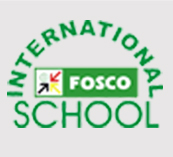The literary essay : writing about fiction / Lucy Calkins, Kathleen Tolan, and Alexandra Marron ; photography by Peter Cunningham.
Material type: TextPublisher: Portsmouth, NH : Firsthand, an imprint of Heinemann, [2013]Description: ix, 190 pages : illustrations ; 22 x 28 cmContent type: text Media type: unmediated Carrier type: volumeISBN: 9780325047393 (pbk. : alk. paper); 0325047391Subject(s): Literature -- Study and teaching (Elementary) | Literature -- History and criticism -- Study and teaching (Elementary) | Fiction -- History and criticism -- Study and teaching (Elementary) | Essay -- AuthorshipDDC classification: 372.64 LOC classification: LB1575 | .C24 2013
TextPublisher: Portsmouth, NH : Firsthand, an imprint of Heinemann, [2013]Description: ix, 190 pages : illustrations ; 22 x 28 cmContent type: text Media type: unmediated Carrier type: volumeISBN: 9780325047393 (pbk. : alk. paper); 0325047391Subject(s): Literature -- Study and teaching (Elementary) | Literature -- History and criticism -- Study and teaching (Elementary) | Fiction -- History and criticism -- Study and teaching (Elementary) | Essay -- AuthorshipDDC classification: 372.64 LOC classification: LB1575 | .C24 2013| Item type | Current library | Call number | Status | Date due | Barcode | Item holds |
|---|---|---|---|---|---|---|
| Giáo trình (Teacher Resources) |
F.I.S Library
F.I.S Library |
372.64 | Available | SEB.10843 |
Close reading can be a way to generate ideas about a text -- By studying characters, people develop ideas about stories -- Elaborating on written ideas using conversational prompts -- Finding and testing a thesis -- Using stories as evidence -- Citing textual evidence -- Using lists as evidence -- Putting it all together -- Writing to discover what a story is really about -- Adding complexity to our ideas -- Writing flash-drafts of literary essays -- Beginnings and endings -- Using descriptions of an author's craft as evidence -- Editing -- Building the muscles to compare and contrast -- Using the lenses of comparing and contrasting to become more thoughtful readers of familiar texts -- Using yesterday's learning, today and always -- Stretching out our essays like we stretched out our narratives -- Exploring commas -- A celebration.





There are no comments on this title.